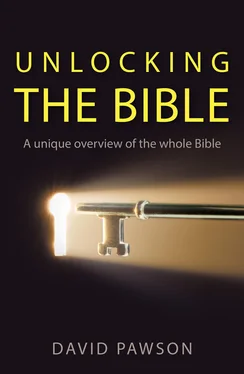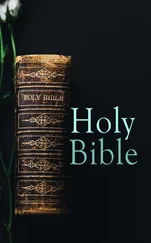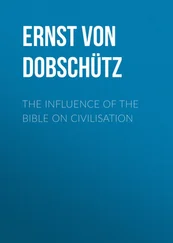 There are a lot of regulations concerning food here, clean and unclean food especially.
There are a lot of regulations concerning food here, clean and unclean food especially.
 There is teaching in Leviticus about not getting involved in occultism or with spiritualist mediums.
There is teaching in Leviticus about not getting involved in occultism or with spiritualist mediums.
 Instructions are given on the action to be taken when there is dry rot in the house. The house is to be torn down in love for your neighbour.
Instructions are given on the action to be taken when there is dry rot in the house. The house is to be torn down in love for your neighbour.
 There is teaching concerning clothing. There is to be no mixed material.
There is teaching concerning clothing. There is to be no mixed material.
 Social life is covered: holiness means paying special attention to the poor, the deaf, the blind, and the aged. If you are a holy youth you will stand up when an older person comes into the room.
Social life is covered: holiness means paying special attention to the poor, the deaf, the blind, and the aged. If you are a holy youth you will stand up when an older person comes into the room.
 Sex is also dealt with. Leviticus has things to say on incest, buggery and homosexuality.
Sex is also dealt with. Leviticus has things to say on incest, buggery and homosexuality.
If you ask what is a holy life, Leviticus says it is how you live from Monday to Saturday and not just what you do on Sunday. God is looking not just for clean people, but for holy people. That is a big difference and until you become a Christian you never even think of becoming holy; you just think of being good – and that is not good enough.
Rules and regulations
We need to be clear about our understanding of the law of Moses. It is called the ‘law’, not the ‘laws’, because it all hangs together. Holiness means wholeness, and all these rules and regulations fit together and form one whole. If you break any of them you have broken them all. (In the chapter on Exodus I likened the breaking of one of the Commandments to breaking a necklace, which causes all the beads to scatter.) This fact cuts across most people’s view of the Ten Commandments. It is generally thought that if we can keep a high percentage of the laws we are doing well! This is not enough.
REASONS
God did not give reasons for all his rules. He did not tell us why we should not wear clothing of mixed materials, for example, or why we should not crossbreed animals or sow mixed seed. We can perhaps see a reason, however, in the fact that God is a God of purity – so he does not like mixed material for clothes, or mixed seed or mixed breeding. Although he does not always give the reasons for a prohibition, in some cases we can make an informed guess. The reason in some cases is undoubtedly hygiene. Some of the regulations about toilets are obvious, for example: there are hygienic reasons behind what God told them to do. Also it may be that some of the food forbidden as ‘unclean’ was also prohibited because of health concerns. Pig’s flesh, for instance, was peculiarly liable to disease in that climate.
Where there are no reasons given, the people were simply to obey because they trusted that the law-giver knew why he had commanded it. In the same way, there are times in the family home when children need to be told that they are to do something ‘because Daddy says so’. Sometimes to give the reason would be inappropriate, or it would be impossible to explain.
With many of the laws God is saying: Do you trust me? Do you believe that if I tell you not to do something I have a very good reason for that?
Too often we are only prepared to do something after we are convinced that it is for our good. We want to be God. Just like Adam and Eve, who took the fruit of the tree of the knowledge of good and evil, we want to decide, to experience and to settle it for ourselves. But God has no obligation to explain himself to us.
Sanctions
God may not give reasons, but he does give sanctions. There is a call for obedience, but the cost of disobedience is also spelt out. And the punishments are pretty severe. In Leviticus 26, therefore, a whole collection of positive reasons for being obedient is laid out, but by the same token there is also a curse on those who disobey. If a Jew reads the book of Leviticus, he finds that a number of things could happen if he disobeys God’s law.
He could lose his home, he could lose his citizenship and he could lose his life. There are 15 sins mentioned in Leviticus for which capital punishment is the consequence. Maybe now we can see why understanding this book was so critical – it is literally a matter of life and death.
Furthermore, Leviticus makes clear that the nation as a whole can lose two things. They could lose their freedom, being invaded by enemies from outside (we see this in the book of Judges). Or they could lose their land, being driven out and made slaves somewhere else. In time, both these things happened to the nation of Israel. These were not empty promises and threats. There are rewards for trusting and obeying God, but there are also punishments for those who distrust and disobey him.
HAPPINESS AND HOLINESS
What God is actually saying through this combination of rewards and punishments is that the only way to be really happy is to be really holy. Happiness and holiness belong together and the lack of holiness brings unhappiness. Most people get it the wrong way round. God’s will for us is that we be holy in this world and happy in the next, but many want to be happy in this world and holy later.
God is willing to let things happen to us which may be painful, but which will make us more holy as a result. Our character tends to make more progress in the tough times than the good.
Reading Leviticus as Christians
What has this book to say to us, living as Christians in the modern world? Do we have to get rid of all mixed-fibre clothing? If we get dry rot in the house, do we have to burn it down?
One principle we can use as a guide is found in Paul’s second letter to Timothy. Paul writes: ‘From infancy you have known the holy Scriptures, which are able to make you wise for salvation through faith in Christ Jesus. All Scripture is God-breathed and is useful for teaching, rebuking, correcting and training in righteousness, so that the man of God may be thoroughly equipped for every good work’.
Paul is talking to Timothy about the Old Testament. The New Testament did not exist when he wrote this, so ‘the Scriptures’ referred to must be the Old Testament. When Jesus said, ‘Search the Scriptures, for they bear witness to me,’ he meant the Old Testament. We can learn about two things from the Old Testament: salvation and righteousness. This goes for Leviticus as well. It, too, can help us understand how to be saved, and it will open our eyes to right living. Those two purposes just shine out.
Leviticus in the New Testament
It is always very illuminating to see what the New Testament does with an Old Testament book. As somebody said: ‘The Old is in the New revealed, the New is in the Old concealed.’ The two belong together and each Testament outlines the other.
There are a number of direct quotations from Leviticus in the New Testament, but two in particular come very frequently: ‘Be holy, for I am holy’ and ‘You shall love your neighbour as yourself.’ There are many other passages where parts of Leviticus are clearly in mind, and in particular we cannot understand the letter to the Hebrews unless we read Leviticus. These two belong to each other. Hebrews could not have been written unless Leviticus had been written first.
Читать дальше

 There are a lot of regulations concerning food here, clean and unclean food especially.
There are a lot of regulations concerning food here, clean and unclean food especially.









